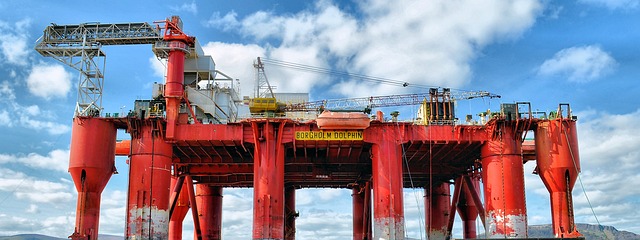Oil Rig Training Programs Available in the US
Oil rig training programs in the United States prepare individuals for various careers in the offshore oil and gas industry. Whether you're aiming to become an oil rig technician, safety officer, or work in drilling operations, discover how to get started and what training options are available near you.

What types of oil rig training programs are available in the US?
Oil rig training programs in the United States cover a wide range of specializations to meet the diverse needs of the offshore industry. Some of the most common types include:
-
Basic Offshore Safety Induction and Emergency Training (BOSIET): This foundational course is mandatory for anyone working offshore and covers essential safety procedures, emergency response, and survival techniques.
-
Well Control Training: These programs focus on preventing and managing well control incidents, crucial for roles in drilling operations.
-
Roughneck and Roustabout Training: These entry-level programs prepare individuals for general labor and maintenance tasks on oil rigs.
-
Drilling Technology Programs: More advanced courses that cover the technical aspects of drilling operations, equipment, and processes.
-
Offshore Crane Operations: Specialized training for those handling heavy machinery and cargo on oil rigs.
-
Offshore Emergency Response Team (ERT) Training: Prepares personnel to respond to various emergencies that may occur on offshore installations.
How long does it take to complete oil rig training?
The duration of oil rig training programs varies depending on the specific course and level of expertise required. Here’s a general overview:
-
Basic safety courses like BOSIET typically last 3-5 days.
-
Entry-level programs for roughnecks and roustabouts can range from 2-4 weeks.
-
Specialized technical training, such as well control or drilling technology, may take 1-3 months.
-
More comprehensive programs that combine multiple aspects of offshore operations can last 6-12 months.
-
Advanced certifications and degree programs in petroleum engineering or related fields may take 2-4 years to complete.
It’s important to note that ongoing training and recertification are often required throughout one’s career in the offshore industry to stay current with safety regulations and technological advancements.
What qualifications do you need to start oil rig training?
The qualifications required to begin oil rig training depend on the specific program and career path you’re pursuing. However, some general prerequisites include:
-
Age requirement: Most programs require participants to be at least 18 years old.
-
Physical fitness: Oil rig work is physically demanding, so a good level of fitness and the ability to pass a medical examination are often necessary.
-
High school diploma or equivalent: This is typically the minimum educational requirement for entry-level positions.
-
Valid government-issued ID and passport: These are essential for offshore work, especially for international assignments.
-
Drug-free status: The offshore industry maintains strict drug policies, and candidates must pass pre-employment drug screenings.
-
Basic safety certifications: Some programs may require prior completion of basic safety courses like BOSIET.
-
For advanced programs: Relevant work experience or a bachelor’s degree in engineering, geology, or a related field may be required.
Where can you find accredited oil rig training centers in the US?
Several accredited institutions offer oil rig training programs across the United States. Some notable centers include:
-
Well Control School (WCS): With multiple locations, WCS offers a wide range of courses approved by the International Association of Drilling Contractors (IADC).
-
PetroSkills: Provides comprehensive training programs for various aspects of the oil and gas industry, including offshore operations.
-
Offshore Petroleum Industry Training Organization (OPITO): While based in the UK, OPITO accredits training providers in the US that meet their standards.
-
Houston Area Safety Council (HASC): Offers safety training and certifications required for offshore work.
-
Maritime Professional Training (MPT): Located in Fort Lauderdale, Florida, MPT provides a variety of maritime and offshore safety courses.
| Training Center | Location | Specializations |
|---|---|---|
| Well Control School | Multiple US locations | Well control, drilling technology |
| PetroSkills | Houston, TX | Comprehensive oil & gas industry training |
| OPITO-Approved Centers | Various US locations | Safety and technical training |
| Houston Area Safety Council | Pasadena, TX | Safety certifications |
| Maritime Professional Training | Fort Lauderdale, FL | Maritime and offshore safety |
Prices, rates, or cost estimates mentioned in this article are based on the latest available information but may change over time. Independent research is advised before making financial decisions.
What job opportunities are available after completing oil rig training?
Completing oil rig training opens up a variety of career opportunities in the offshore oil and gas industry. Some potential roles include:
-
Roustabout: An entry-level position responsible for general maintenance and manual labor on the rig.
-
Roughneck: Assists in the operation and maintenance of drilling equipment.
-
Derrickhand: Operates the drilling equipment and assists in managing the drilling fluid system.
-
Driller: Supervises the drilling crew and operates the main drilling controls.
-
Offshore Installation Manager (OIM): Oversees the entire offshore installation and its operations.
-
Safety Officer: Ensures compliance with safety regulations and manages emergency response procedures.
-
Subsea Engineer: Specializes in underwater equipment and operations related to offshore drilling.
-
Crane Operator: Handles the movement of heavy equipment and supplies on the rig.
-
Rig Electrician: Maintains and repairs electrical systems on the offshore installation.
-
Rig Mechanic: Responsible for the maintenance and repair of mechanical equipment on the rig.
These roles offer varying levels of responsibility and compensation, with opportunities for career advancement as you gain experience and additional certifications.
Oil rig training programs in the United States provide a solid foundation for those seeking careers in the offshore oil and gas industry. By choosing the right program and obtaining the necessary qualifications, you can position yourself for a rewarding career in this challenging and dynamic field. Remember that continuous learning and adherence to safety protocols are crucial for long-term success in offshore operations.




